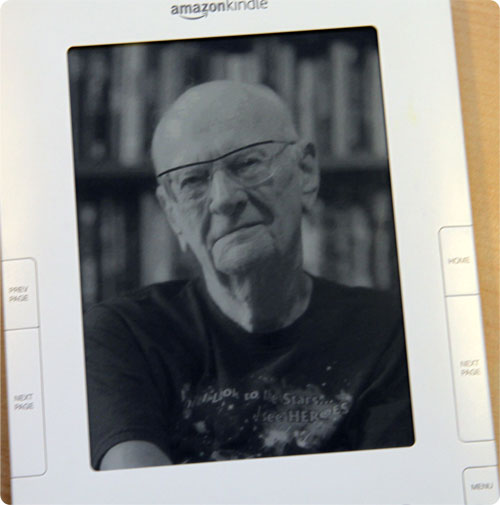Arthur C. Clarke, one of the “Big Three” along with Robert A. Heinlein and Isaac Asimov, is most famous for his work 2001: A Space Odyssey. Based on the author’s short stories, mostly The Sentinel, the novel was completed in 1968, concurrently with Stanley Kubrick’s direction of the movie version. In 1991 the film was considered “culturally, historically, or aesthetically significant” by the United States Library of Congress and preserved in the National Film Registry.
Available on Amazon Kindle, Moonwatcher’s Memoir: A Diary of 2001: A Space Odyssey by Dan Richter gives an insider’s view of shooting “The Dawn of Man” sequence, with interesting details about costumes, make-up,choreography and cinematography. “Filled with illustrations and memorabilia from the making of 2001, this book will fascinate film aficionados, Kubrick devotees, and science fiction fans alike.”
The Fountains of Paradise (1979) is another popular novel by Arthur Clarke; it got the Nebula Award for Best Novel in 1979 and the Hugo Award for Best Novel in 1980. In the book Clarke brings up a totally new idea of a space elevator that would connect the Earth with a space station, thus “combining exquisitely daring blueprints of future worlds with perceptive observations of our own.”
The City and the Stars (1956) is a rewrite on Clarke’s first novella, Against the Fall of Night. The author revised the original version to improve individual scenes and add details to the plot. “The 10-billion-year-old metropolis of Diaspar is humanity’s last home. Alone among immortals, the only man born in 10 million years desperately wants to find what lies beyond the City. His quest will uncover the destiny of a people…and a galaxy.”

Your link to ‘The City and the Stars’ actually leads to ‘The Fountains of Paradise.’
Against The Fall of Night is another book I’d love to see on the Kindle.. read it years and years ago and was hoping to find it, but so far, no love..